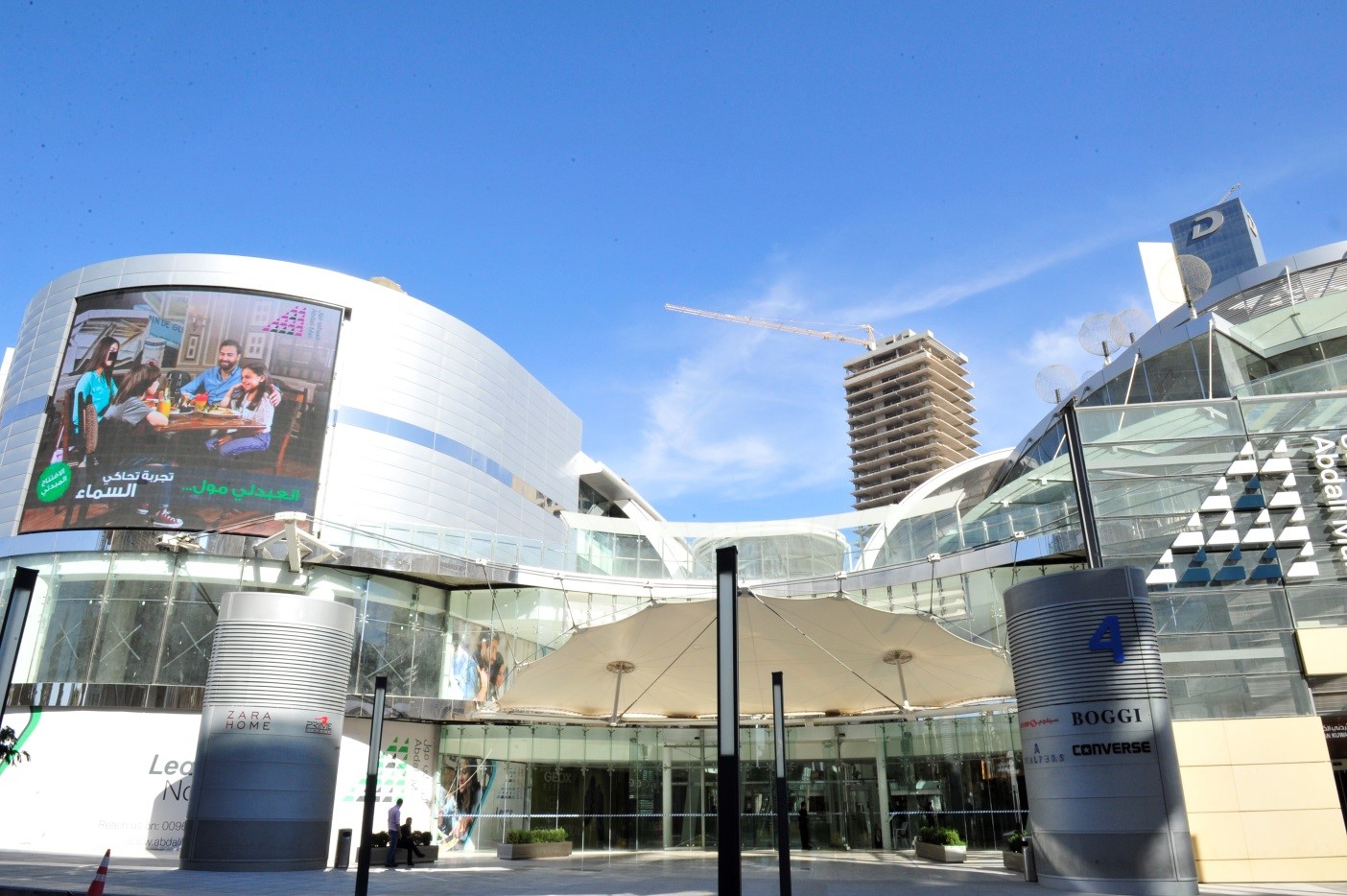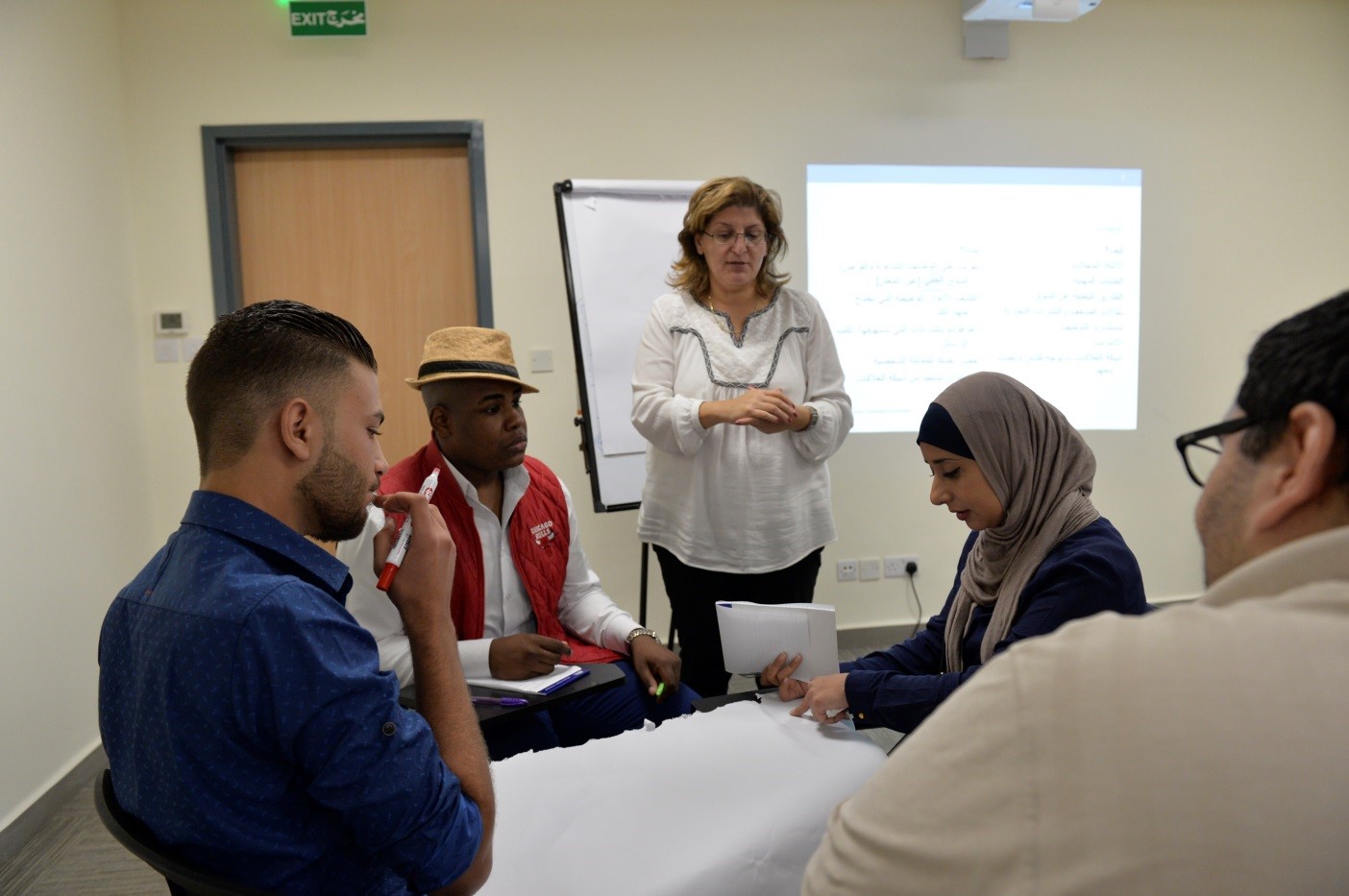EBRD and Abdali Mall Recruitment and Training Centre
EBRD and Abdali Mall Recruitment and Training Centre

Training delivered at the Abdali Mall Recruitment and Training Centre.
The project in brief
Implemented by
European Bank for Reconstruction and Development (EBRD)
Country
Jordan
Duration
Training began being offered to young Syrian refugees in 2018.
The project is ongoing – it is now a self-sustaining training programme. The EBRD is building on the experienced learned to work with other partners to integrate and provide skills to other target groups.
Description
EBRD's financing to the Abdali Mall Company in Amman, accompanied by the establishment of a training centre offering pathways to formal employment for target groups.
EBRD Video: Refuge in Jordan: A New Start for Syrians
Project aims
In 2015, EBRD signed a USD 80 million loan with Abdali Mall Company to finance the development of a new shopping and entertainment centre in Amman. The project will create up to 2,000 new jobs in in retail, hospitality, entertainment, and facility management roles.
Despite high youth unemployment rates, employers in Jordan’s retail and hospitality sector have long suffered from difficulties in hiring skilled and qualified staff to ensure high-quality service. A lack of quality training programmes, skills standards, and the misperception of service industry as lacking career progression opportunities are often mentioned as key reasons for this mismatch.
To help ensure access to a well-trained workforce for the new mall, Abdali Mall established an on-site training programme based on international best practices – the Abdali Mall Recruitment and Training Centre (AMRTC).
The AMRTC is a high-quality professional education facility, based inside the mall complex itself, which aims at providing skills development trainings to young people, women and refugees in the retail and hospitality sector, focusing on a market-intelligence-based curriculum.
Abdali Mall allocated physical space to AMRTC, furnished it with the required stationery and ICT equipment, and developed a unique AMRTC brand. The EBRD provided technical assistance to establish the training facility including high quality training, on-the-job learning opportunities, career guidance, job matching, and employment information services. The AMRTC has been fully operational since 2016.
In 2018, Abdali Mall extended the existing training and job brokerage programmes to young Syrian refugees in an effort to broaden the impact of enhanced skills training for young people and to provide an even greater skills base for local businesses.
Resources used
EBRD financed the USD 80 million loan for the mall, supported by technical assistance (from the EBRD Shareholder Special Fund) which was part of establishing the training centre and training provision linked to the expected staffing needs of retailers in the centre.
EBRD Video: Youth inclusion in Jordan - working with the private sector to close the gap
Partners
- EBRD Shareholder Special Fund.
- Abdali Mall, following a tender process, selected Jordan Education for Employment (JEFE) to manage AMRTC, in collaboration with Jordanian Hospitality & Tourism Education Company (JHTEC) and other private sector entities.
- UNHCR is also a key partner for JEFE in the identification and selection of potential refugee trainees, in accordance with the specifications of the training to be delivered.
- UK-based skills and workforce development consultancy People 1st International provided guidance and capacity building throughout the process.
- Models of best practice and recommendations going forward disseminated with the Jordanian Ministry of Labour, UNHCR, DRC, NRC, EFE Jordan, JHTEC, ILO, and People 1st International.
Challenges and how they were overcome
Challenges
To support the establishment of a truly demand-driven training centre, EBRD conducted up-front a study to help identify the key operational challenges and overcome some of the potential hurdles early in the project design.
Findings were disseminated and discussed at a Models of Best Practice Forum featured representatives from MOL, UNHCR, DRC, NRC, EFE Jordan, JHTEC, ILO, EBRD, and People1st International
The key best practices identified
- Working with industries or employers that genuinely look to recruit Syrian refugees.
- Working with the Ministry of Labour to open up some of the closed industries to refugee employment, where there are genuine job opportunities that are not being filled by Jordanians, and to open part-time work as a form of employment for refugees.
- Having the companies declare pay and benefits up front for their potential Syrian refugee workforce and be engaged at the beginning of the process of recruitment.
- Benefits such as uniform, transport, meal, social security, and insurance increase workforce retention.
Results of the Good Practice
- AMRTC has trained around 600 young women and men, a third of whom Syrian refugees (40% of whom female). Following training, participants report better access to formal employment. For example, one of the young Syrian refugees undertook a food hospitality course and is now a pastry chef in the mall.
- The training helps fill skills shortages identified by Jordan’s retail and hospitality service industry, which conveyed persisting difficulties in hiring skilled / qualified staff to ensure high-quality service.
- The inclusive and innovative AMRTC programme demonstrates both the value of multi-stakeholder partnerships, and the potential of new, sustainable financing mechanisms.
How the project meets the GCR Objectives
Objective 1: Ease the pressures on host countries
By meeting employment needs and integrating refugees into formal employment opportunities – without recourse to public funds.
Objective 2: Enhance refugee self-reliance
By providing vocational, accredited skills to refugees in a situation where they then have access to formal employment
Next steps
Training for young people including refugees continues. The Centre is financially sustainable, based on contributions from Abdali Mall and local retailers, other private sector employers, and donors.
Submitted by:
Camilla Committeri, Corporate Strategy, European Bank for Reconstruction and Development (EBRD)



